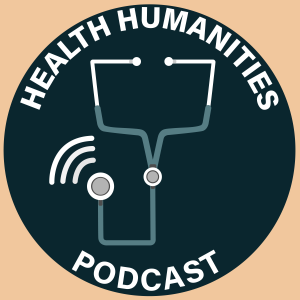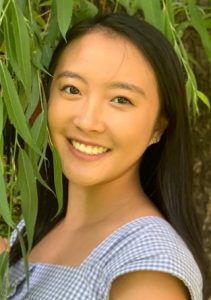As we struggle to enrich our lives and occupy our minds while we navigate these stressful times, many like myself have taken this opportunity to explore podcasts to feel connected with others, and in some ways distracted from the cacophony of chaos. Podcasts offer an accessible, easily digestible, and intimate alternative to traditional print media that helps readers connect and resonate with the hosts and their guests. One such podcast is the Health Humanities Podcast, produced by the Health Humanities Journal of UNC (HHJ).
feel connected with others, and in some ways distracted from the cacophony of chaos. Podcasts offer an accessible, easily digestible, and intimate alternative to traditional print media that helps readers connect and resonate with the hosts and their guests. One such podcast is the Health Humanities Podcast, produced by the Health Humanities Journal of UNC (HHJ).
The HHJ, which is largely managed by undergraduate students, seeks to facilitate interdisciplinary thinking and collaborative work related to health, illness, caregiving and medicine. They publish two editions a year, but with the onset of the pandemic, the spring issue which was so meticulously and tirelessly planned suddenly fell through. Unable to distribute any hardcopies of the journal, HHJ Editor-In-Chief Elizabeth Coletti was left with only the boxes of the printed copies and an idea. Although they released their journal online, Elizabeth wanted to go a different route, and decided upon creating a podcast. Typically, during exhibition night for the journal, the writers would perform their piece in front of an audience, which is something that both the writers, editors, and readers seemed to enjoy immensely. She had already taken courses that gave her some experience in producing a podcast so for her, this was a natural progression. Her and her team of editors and writers then went to work, and despite all the technical difficulties compounded by a remote semester, produced the Health Humanities Podcast.
Each episode of the podcast ranges from about fifteen to twenty minutes long and focuses on just one author and their work. After allowing the authors to present their writing, Elizabeth interviews the writers, and asks them about their writing process. For many of the writers, the journal offers writers the outlet for human connection in a field that is often so sterile and stoic. These writers share their personal experiences with healthcare as patients, providers, and family members, and in doing so navigate the intangible mess of feelings that these moments leave us with. In the first episode, Rachel Carney shares her own experience with mental health and her experience while working in the hospital. In the next episode Katie Danis reads her poem describing her relationship with her father, who was pursuing a medical career during her childhood. In episode three Lucas Thornton reads his fictional short story describing a man’s experience while getting a chlamydia test, and the moral implications that it brings. In episode four Katie Regittko describes her experience battling an eating disorder.
In this fourth episode, Elizabeth talks about her friends’ reaction to the journals, and how they are shocked that so many of the short stories and poems seem so sad. While these experiences certainly strike us more deeply and maybe offer more room for self-inspection, these pieces also tease out a feeling of hope. There is hope for us, no matter how strained your childhood relationship was with your father, no matter how harrowing the experience of an eating disorder may be, and no matter how demoralizing a county health department visit may be. There is hope that we will get better and hope that maybe we are not so alone, a concept Lucas describes in the third episode. Health is unifying, and so fundamental to life and the human experience.
Although Elizabeth laments not being able to have a physical copy of the journal published, the podcast gives the journal a new outlet to continue with their wonderful work, and I for one am a huge fan. Each episode allows you to get to know a new person and their unique perspectives and musings on what health means to them. The podcast humanizes the peculiar experiences with healthcare that each writer has had through physically giving them a voice. Words on a page can sometimes seems disconnected, but it is hard to ignore the voice of someone who is describing their most vulnerable moments. These voices are worth being heard and appreciated.
You can find episodes one through six of the Health Humanities Podcast on Apple Podcasts, Google Podcasts, Amazon Music, the Podbean app, and on their website, where new episodes are released weekly!
 Jacqueline Gu is a junior majoring in Biology on the Quantitative track, and English concentrating in Science, Medicine, and Literature, with a minor in Medical Anthropology. She is interested in studying science as a historically and culturally informed social structure that is in a constant state of flux. She hopes that through volunteering at the HHIVE lab, she can continue to learn more about how conceptualization of health is situated in a broader context of power and inequality. On campus, she is involved in SHAC as a Mandarin Coordinator, Coulture Magazine as a health editor, and Musical Empowerment as a piano teacher.
Jacqueline Gu is a junior majoring in Biology on the Quantitative track, and English concentrating in Science, Medicine, and Literature, with a minor in Medical Anthropology. She is interested in studying science as a historically and culturally informed social structure that is in a constant state of flux. She hopes that through volunteering at the HHIVE lab, she can continue to learn more about how conceptualization of health is situated in a broader context of power and inequality. On campus, she is involved in SHAC as a Mandarin Coordinator, Coulture Magazine as a health editor, and Musical Empowerment as a piano teacher.

